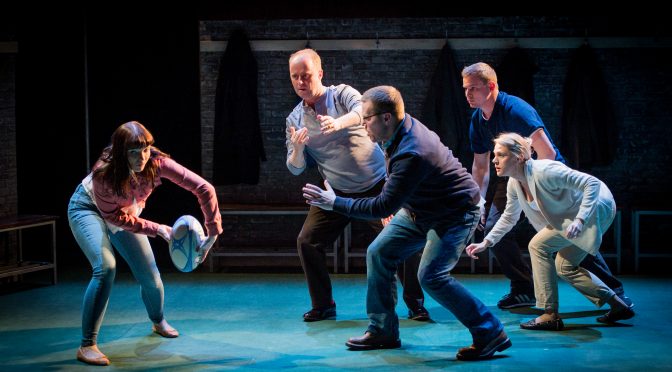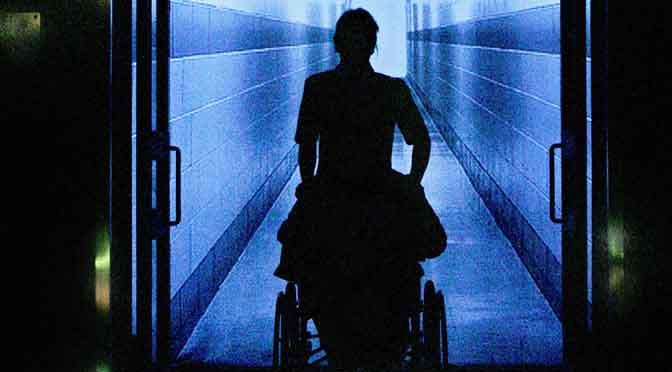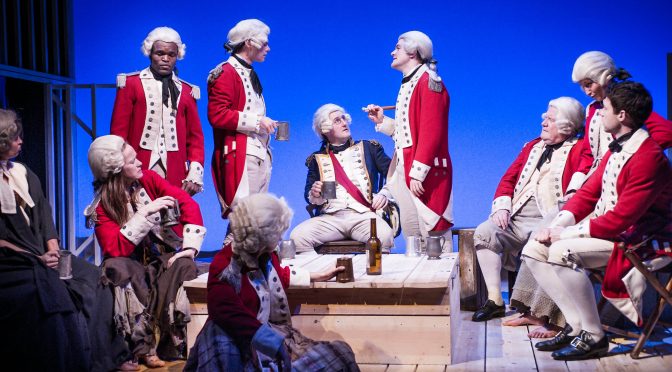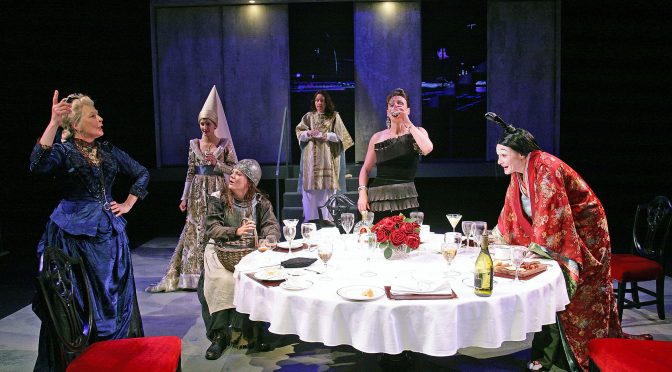The life of Welsh rugby star Gareth Thomas, including his well-publicised struggle with his sexuality, makes for compelling drama. There’s a danger, though, that it might interest rugger fans more than anyone else. Here is where Robin Soans’ play, based on Thomas’ life so far, first scores: far more than a biography, or a work about sport, Crouch, Touch, Pause, Engage is ambitiously expanded into a big, bold play. Full of intelligence and power, it lives up to its verb scrum of a title.
Working with Thomas, there’s a searing sense of honesty to the piece. The player is a hero because of his sporting status and charity work, but he is movingly portrayed as human and hurt. That the play isn’t a star vehicle is enforced by having all six cast members, male and female, don a jersey and take the leading role at some point. The casting works surprisingly well, although predictably the younger men, Rhys ap William and Daniel Hawksford, who also ably double as Thomas’ father and best friend, have the edge.
Expanding the play, Thomas’ story is told in tandem with that of a troubled young girl, also from Bridgend, in Wales. In a stunning performance from Lauren Roberts, Darcey’s story of self-abuse and attempts at suicide emphasises the admirable unsentimentality that marks the piece. Connecting these two very different locals, the play becomes a bullish kind of community theatre, rooted in geography and exploring politics in the punchy manner that director Max Stafford-Clark excels at. With the production ending a UK tour here in London, it’s stirring to know it has deservedly been offered over the country.
Until 20 June 2015
Photo by Robert Workman




